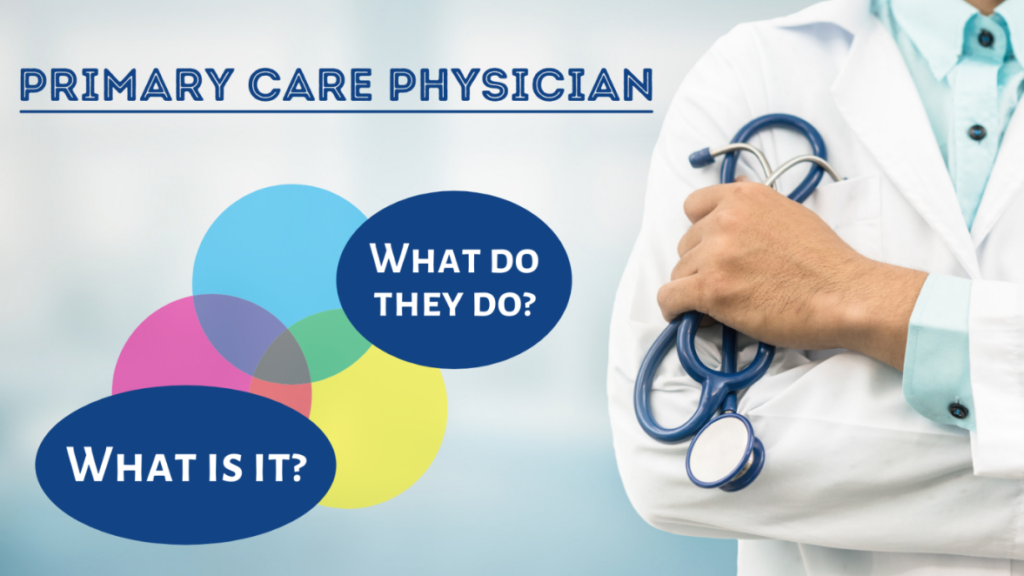Ever wondered about the connection between what you eat and how you feel? Well, emerging research is uncovering fascinating links between our diet and mental health. Your plate holds more power than just satisfying hunger. It can influence your mood, stress levels, and even symptoms of depression.
The foods we consume can profoundly affect our physical and mental health, making them key components of wellbeing. A diet packed with fruits, veggies, lean proteins and beneficial fats can not only give you a lift in energy but also sharpen your focus.
A poor diet on the other hand might be contributing to feelings of anxiety or sluggishness without us even realizing it. Let’s delve deeper into this intriguing relationship – for better brain functions, improved mood, and overall wellness!
Table Of Contents:
- Understanding the Connection Between Diet and Mental Health
- The Impact of Mediterranean Diet on Mental Health
- The Downside of Refined Carbohydrates
- The Role of Glycemic Index in Psychological Well-being
- Link Between Hypoglycemia and Mood Disorders
- Inflammation as a Link Between Diet and Mental Health
- Benefits of the Mediterranean Diet in Reducing Inflammation
- The Influence of Diet on Gut Health
- The Impact of Probiotics on Mental Health
- The Need for Public Health Initiatives and Further Research
- Conclusion
Understanding the Connection Between Diet and Mental Health
Our eating habits have a profound effect on our mental health. Just as a car needs fuel to run, your brain requires nutrients from food for optimal functioning. A diet rich in certain foods can support good mental health, while others may exacerbate conditions like depression or anxiety.
Read more: Know Your Numbers: What Your Blood Pressure, A1C, and Cholesterol Levels Really Mean
The Impact of Mediterranean Diet on Mental Health
A well-balanced diet such as the Mediterranean diet, abundant in fruits, vegetables, nuts, and legumes, has been linked with lower rates of depressive disorders. Key stats indicate that those adhering to this dietary pattern experienced fewer depressive symptoms than their counterparts who consumed processed foods regularly.
Mediterranean diets also contain olive oil – an excellent source of healthy fats beneficial for heart health which further supports improved mood states.
Read more: Mastering Cold and Flu Relief in Coachella Valley
The Downside of Refined Carbohydrates
Dietary patterns high in refined sugars pose potential risks to mental well-being. Consuming large amounts of these types of carbohydrates leads to rapid spikes and falls in blood sugar levels affecting energy levels and attention span adversely. Major Depressive Disorder (MDD), is one such condition impacted by poor nutrition choices including excessive intake of refined carbs.
Click to Tweet
The Role of Glycemic Index in Psychological Well-being

Understanding the glycemic index is crucial for optimal mental health. Foods with a high glycemic index, like white bread or sugary drinks, can spike blood sugar levels quickly.
Rapid changes in blood sugar often lead to mood swings and fatigue, impacting psychological well-being negatively. Eating foods with a low glycemic load has been connected to better feelings and enhanced mental capacity.
Link Between Hypoglycemia and Mood Disorders
Hypoglycemia (low blood sugar) can seriously affect your mood. This condition often results from consuming meals heavy on refined carbohydrates which are rapidly digested leading to sudden drops in glucose levels post-meal.
This rollercoaster of highs and lows could potentially trigger anxiety attacks or depressive symptoms in some individuals. A study published by the American Journal of Clinical Nutrition suggests that people who consume diets lower on the glycemic scale tend to be less prone to depressive disorders than those following high-GI diets.
In essence, being mindful about where our food falls on this scale may help manage mood disorders effectively while promoting overall well-being.
Click to Tweet
Inflammation as a Link Between Diet and Mental Health
Many are aware that diet can affect our physical health, but it’s also crucial for mental well-being. Recent research has indicated a correlation between diet and mental health.
Read more: Staying Hydrated: The Key to Optimal Health
Benefits of the Mediterranean Diet in Reducing Inflammation
The Mediterranean diet is one such example with potential positive effects on mental health. A study published in the American Journal of Medicine showed this dietary pattern, rich in fruits, vegetables, olive oil, fish (full of healthy fats), and unprocessed grains could reduce inflammation markers.
This reduction might be due to less intake of refined sugars and processed foods which have been linked to increased oxidative stress – a condition contributing to inflammation within our bodies.
Mediterranean diets tend towards lower glycemic index values than Western dietary patterns. Steady blood sugar levels may help improve concentration by keeping energy levels consistent throughout the day while minimizing mood swings often associated with fluctuating glucose levels.
Eating patterns affect more than just your waistline; they can play a significant role in managing mental health conditions like depression or anxiety too.
Click to Tweet
The Influence of Diet on Gut Health
Your diet plays a vital role in maintaining your gut health. Eating nutrient-packed, fiber-rich foods helps to cultivate beneficial bacteria in our digestive system. This balance helps with digestion and boosts our immune system.
On the flip side, poor eating habits can upset this delicate ecosystem. High-fat, low-fiber diets tend to foster unhealthy gut microbiomes by allowing harmful bacteria to flourish.
Read more: The Benefits of Personalized Fitness and Nutrition Programs faqs
The Impact of Probiotics on Mental Health
Research has shown that probiotics not only support gut health but also influence mental well-being. These beneficial microbes may alter brain function and reduce symptoms of depression. In fact, one study found participants who took probiotic supplements had an improved emotional response compared to those who did not. Another research indicated a link between daily consumption of probiotics and reduced anxiety levels. So including more fermented foods or taking quality probiotic supplements might just give your mood a boost.
Bear in mind that individual reactions may differ drastically due to hereditary contrasts and different elements. Therefore, it’s crucial you talk with your healthcare provider before making any significant dietary changes.
Click to Tweet
The Need for Public Health Initiatives and Further Research

As we uncover more about the link between diet and mental health, it becomes clear that public health initiatives are needed to educate on good nutrition. We know diets rich in amino acids, found in lean meats and legumes, can help improve concentration by boosting brain functions.
Similarly, oily fish packed with healthy fats known as omega-3 fatty acids contribute positively to heart health and our attention span. The positive effects of a well-balanced diet extend beyond physical health; they’re instrumental in improving mental conditions too.
A randomized controlled trial showed that dietary improvements can be an effective adjunctive treatment for major depressive disorders. It’s crucial these findings reach people eating Western dietary patterns characterized by processed foods low in essential nutrients but high in free radicals causing inflammation – one of the triggers for mental illnesses like depression.
Further research is necessary not only to understand this connection better but also to identify ways a nutrient-rich diet could combat other psychological disorders such as anxiety or stress-induced ailments. In short: food impacts mood – let’s make sure everyone knows how much.
Read more: The Importance of Sports Physical Exams
Click to Tweet
FAQs
Does what I eat really affect my mood?
- Yes. Higher overall diet quality is consistently linked with a lower risk of depression, and recent syntheses keep finding the association.
What eating pattern has the best evidence for mental health?
- A Mediterranean-style pattern (vegetables, fruit, legumes, nuts, whole grains, fish, olive oil) shows the strongest signal—from cohort reviews and small RCTs in people with depression (e.g., SMILES; AMMEND). It’s reasonable as an adjunct to care.
Do ultra-processed foods (UPFs) worsen mental health?
- High UPF intake is associated with higher depression risk in large cohorts (signal strongest for artificially sweetened products). Correlation ≠ causation, but the trend is consistent—so bias toward minimally processed foods.
Which nutrients/supplements are actually helpful?
- Best-supported: omega-3s (EPA-dominant) as an add-on for major depression; vitamin D shows modest benefit in newer meta-analyses (not universal). Discuss dosing/fit with your clinician—these support care, they don’t replace it.
Do probiotics (“psychobiotics”) help mood or anxiety?
- Evidence is promising but modest: several recent systematic reviews report small improvements in depressive/anxiety symptoms; effects vary by strain, dose, and duration. Consider food sources (yogurt, kefir, kimchi) and discuss supplements case-by-case.
Is sugar or a high-GI diet bad for mental health?
- High glycemic index loads and frequent sugary drinks are linked to more depressive symptoms in observational and longitudinal data; stabilizing blood sugar may help mood and energy. Favor fiber-rich carbs and balanced meals.
How much caffeine is “too much” if I’m anxious or not sleeping?
- The FDA cites ≤400 mg/day as generally safe for most adults, but a 2024 meta-analysis links higher caffeine to greater anxiety risk, and even typical amounts can disrupt sleep in sensitive people—so taper if anxious/insomniac.
How fast might diet changes help—and do they replace treatment?
- In trials, meaningful improvements appeared by ~12 weeks alongside standard care; diet is a complement, not a substitute, for therapy/medication. Use nutrition to enhance outcomes while you follow your clinician’s plan.
Conclusion
Your diet and mental health are closely linked. Understanding this connection can help you make healthier food choices that boost your mood and mind.
The Mediterranean diet, rich in fruits, vegetables, nuts, and legumes, can reduce the risk of depression. Be mindful though – diets high in refined carbohydrates might lead to poor mental health outcomes.
Remember that a high glycemic index could affect psychological well-being negatively. On the other hand, incorporating probiotics into your routine may improve gut health and positively influence mental wellness.
Beyond just personal changes though – there’s a need for public initiatives to spread awareness about these connections between our plates and our minds!
In all this exploration of how what we eat affects how we feel – it becomes clear: eating well is not only good for the body but also nourishes the mind!




